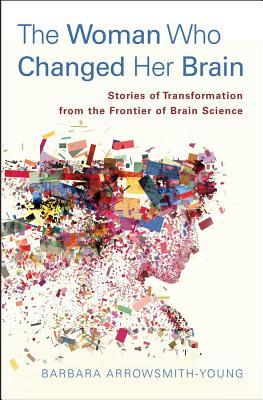Posts Tagged ‘Arrowsmith School’
Witnessing an explosion of consumer-facing neurotechnologies to (potentially) harness lifelong neuroplasticity
— Last week I shared some key scientific, technological and investment trends revolutionizing Brain Health, based on my participation at the 2016 SharpBrains Virtual Summit, and promised a second article more focused on the technology side of things. Here it is :-) Just a few weeks after the SharpBrains Summit I also attended CES 2017. While I enjoyed the myriad emerging…
Read MoreWhy I Wrote The Woman Who Changed Her Brain
We have always thought that “our brain shapes us.” I wrote my new book, The Woman Who Changed Her Brain (May 2012; Free Press, Foreword by Norman Doidge), to prove that the reverse is equally true. I wanted to demonstrate how “we can shape our brains.” Imagine having a brain that is capable and incapable at…
Read MoreUnlocking Dyslexia in Japanese
Great article in the Wall Street Journal today: Unlocking Dyslexia in Japanese. Quotes: — “Experiences like that of the Lundays are providing scientists and educators with clues about how people with dyslexia learn and how best to teach them. Researchers have long observed that some dyslexics have an easier time with languages like Japanese and…
Read MoreUsing Brain Plasticity to help Children with Learning Disabilities
Did you read The Brain That Changes Itself: Stories of Personal Triumph from the Frontiers of Brain Science, the great book on neuroplasticity by Norman Doidge? If so, you will have heard about the Arrowsmith School/ Program, which was also one of the Top Ten Finalists in 2010 Brain Fitness Innovation Awards. The following is…
Read MoreNew Report Finds A Brain Health Revolution in the Making, Driven by Digital Technology and Neuroplasticity Research
In spite of the recent economic downturn, revenues for digital technologies to assess, enhance and treat cognition, or digital brain health and fitness tools, grew 35% in 2009. “The convergence of demographic and policy trends with cognitive neuroscience discoveries and technological innovation is giving birth to a nascent marketplace that can fundamentally transform what brain…
Read MoreWhat impressed the Judging Panel re. Innovation Awards Winners and Finalists
Let me now share what the Judging Panel and the SharpBrains team found most impressive from each Winner and Finalist of the 2010 Brain Fitness Innovation Awards, accompanied by some additional information on each of these 10 noteworthy initiatives and case studies. Grand Prize Winner USA Hockey, Inc., is the National Governing Body of the…
Read More


